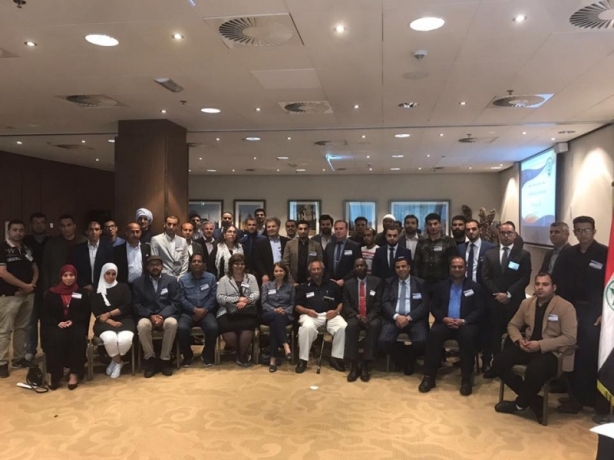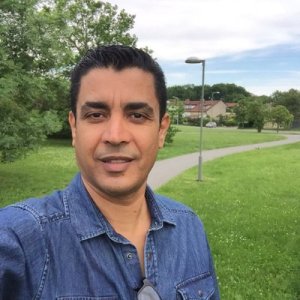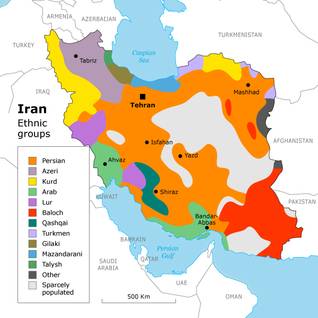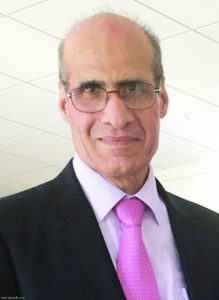 Ahwazna
Ahwazna
Hamid Mansour: We should address the West to correct the stereotypical image it has of Arabs
Saad al-Din Ibrahim: Iranian regime uses minorities to foment discord among Arabs
Zafer Mohammed al-Ajmi: The best defense is a good offense; move the battle inside Iran
Fatima Abdullah Khalil: Liberating Ahwaz will be a severe blow to Iran
Ayoub Said: The occupation benefited from both internal and external factors
Ismail Khalafullah: We have six solutions to the Ahwazi situation, including a popular revolution
Hassan Radhi: The occupation is trying to obliterate the identity of the people of Ahwaz
————-
The Arab European Foundation for International Relations (EISO) on Saturday held a symposium entitled “The Implications of the Arab-Iranian Conflict on the Ahwazi Issue” on August 26, in light of the Arab-Persian conflict.
The seminar included several sessions that began with a morning session on “the Arab-Iranian conflict in light of the transformations of the Middle East”, followed by the first lecture by Dr. Saad Eddin Ibrahim and Dr. Barbara Ibrahim, on “Methods of Conflict Management in the Middle East.”
In the second lecture, Fatima Khalil spoke about the “nature of the Arab-Iranian conflict: the geopolitical axis of the conflict.” The third lecture, in which Dr. Zafer al-Ajmi spoke, broached on “the role of the Ahwazi question in the Arab-Iranian conflict.” In the evening, the symposium was divided into three lectures. The first, entitled “The Right to Self-Determination, was given by Dr. Ismael Khalafallah. And the second lecture by Ayoub Said entitled “Occupying the Ahwaz: Reassessment of the Status quo” and the third lecture Presented by Hassan Radhi and focused on the policies of the center towards the people of Ahwaz over the past two decades.”
—————–
Hamid Mansour, the member of the Executive Committee of the Arab Struggle Movement for the Liberation of Ahwaz, has given the opening speech of the symposium, where he proclaimed the launch of the Arab-European Foundation for International Relations “AEFIR. It will be of significant role in media, politics, and culture. A host of Ahwazi youth who is interested in the Ahwazi plight witnessed AEFIR’s launch. In his speech, he pointed to the weak Arab influence in the Western society, which has the upper hand in the world today, noting that this allowed the opponents to be alone in the arena of influential work. They managed to create a distorted stereotype in the minds of Western public opinion due to their strong political and media presence, to be the sole basis for interpreting the reality of the political conflict in the Arab region, which in the end results in shaping an unfair Western opinion of the just Arab causes. He stressed the important role played by NGOs and public relations centers in rectifying the way through which civil and official institutions in the West look on just Arab causes, as well as building inter-relations and developing them among peoples to achieve common interests. Mansur pointed out that the AEFIR will pay great attention to filling the vacuum and building relations in order to mobilize for international cooperation on the Ahwazi question and the other just Arab causes. He called for developing and renewing the discourse, especially that the contemporary world does not tackle such issues in terms of values of justice and ideals. Interest is the foremost criterion. For it, armies are mobilized, positions are adopted, and leaders are unseated. He indicated that the most important objective of the institution is to correct the image of Arabs without begging. He pointed out that Arab issues are indivisible, and the Ahwazi plight is an integral part thereof. He stressed that the Arab interest necessitates broadening the scope of the issue’s perspective in order to make it stronger by avoiding partial solutions that only emphasize weakness and powerlessness. He said that the foundation seeks to present the Ahwazi issue as a just Arab and humanitarian cause. It seeks to manifest its national dimension, not only the political and historical aspects. AEFIR yet plans to render clear the strategic importance of the Ahwazi plight for the other Arab questions. Also, the newborn Foundation aims to explain to the whole world how settling the Ahwazi issue will be of significant importance for stability in the region and enhancing global peace and security. According to the lecturers, the foundation shall reiterate that ditching the Ahwazi cause will show the world how Arabs are ready to concede their rights.
Dr. Saad Eddin Ibrahim, director of the Ibn Khaldun Center for Development Studies, in his lecture entitled “Methods of Conflict Management in the Middle East” said that the Iran is a challenge to the Arab region. He indicated that it is not a threat. According to him, a threat is a thing that comes from outside such as Israel. The Iranian threat is part of the region. He noted that Iran acted as the policeman of the Gulf since its last monarch Shah Mohammed Reza Pahlavi, with the blessing of the US. He pointed out Jimmy Carter said from Tehran that Washington welcomes Iran’s role as a policeman to maintain the security of the Gulf.
He considered that justice as a value is one of the main demands of all peoples of the world, stressing that the demands of the people of Ahwaz are an integral part of all the demands and slogans that united the whole world, such as values of freedom and democracy. He explained that Ahwaz had been isolated from its Arab sphere and given to the shah in return for an agreement that would enable Britain to search for oil on the eastern shore of the Gulf. This was part of the Sykes-Picot agreement and others. He said that this ambition could be stopped by awareness, coordination, and solidarity among all local factions to face up to the expansionist Persian hegemony. He argued that this expansionist desire will not be halted by changing the regime there, history tells us so. It is a deep-rooted orientation in the Persian mindset. He noted that the absence of the Egyptian role over the past two decades enabled Iran to spill over its influence into at least five Arab countries. It began to exploit the rampant poverty in some African countries to infiltrate the east coast of Africa in an attempt to besiege the Kingdom (of Saudi Arabia) and Egypt. He pointed out that the Persians are the inventors of chess, a game through which you can defeat your rival using his papers, and this is what is happening now that the Iran exploits any popular base in the Arab countries as a launch pad for spillover. He pointed out that Iran has started to play on the heartstrings of those who have a love for Ahlul Bait, Prophet Mohammed’s family. This issue attracts many sympathizers in Egypt. For those people, Iran offers money and other forms of aid. It helps them build their institutions. These establishments promote Shiism in its essence. Ibrahim called for the need to cooperate to create rational public awareness without hostility or hatred against anyone, including the Iranians themselves, as the Persians Iranians make up only 40%, of the Iranian people and the rest are groups of different ethnicities, pointing out that the Persians are the strongest group and they managed to prevail over the rest of the people. Yet he called on all those marginalized in Iran to stick to solidarity, stressing that Ahwazis are entitled to spread brotherhood and solidarity with all oppressed groups on the basis of equality and justice for all, and cooperate with all liberal groups in the region, to seek to acquire an observer status at the Arab League and United Nations.
——————–
Dr. Dhafer Mohammed Al Ajmi, Executive Director of Gulf Watch Group, in his lecture entitled “Positions of Gulf States on Ahwaz: Reality and Hope”, pointed out that the international relations are administered by two types of personalities, either a diplomat or a soldier. He sees that ambiguous positions are over in the Gulf. “Saudi Arabia stands firmly in the face of Iran’s expansionism,” said Crown Prince Mohammed bin Salman. “Saudi Arabia is well aware of the fact that it is a target of the Iranian regime, and that the Kingdom will not wait until the battle rages on the Saudi soil, but it will work to move the battle inside Iran ” He stressed that the solution to the Iranian meddling in the Gulf countries is to shift the theater of the battle into the Arabian territories of Ahwaz, stressing that working in this spot shall be very painful for Iran. He cited a statement of former Iranian President Mohammad Khatami, where he said: “Iran lives by Khuzestan.” He concluded by calling for the unification of speech and efforts for the Ahwazis to obtain their right to self-determination.
Fatima Abdullah Khalil, a writer and researcher on the Arabian Gulf’s affairs, in her lecture entitled “Iranian expansion from Ahwaz to Yemen”, concluded GCC states should be the Launchpad for resisting the Iranian schemes since they are more stable, richer and more independent compared to neighboring Arab countries. She pointed out that the GCC countries began recently to try to bring back the Arab Shiites to the Arab and Gulf sphere, through the Saudi-Iraqi rapprochement. She pointed to the need to promote Yemeni containment from within through integrating the Yemeni people into the Gulf, and supporting groups opposed to Iran, particularly Ahwazis. Yet she stressed that retaking Ahwaz is an Arab national necessity, and a geostrategic necessity, which will pave the way for Ahwaz to be independent and join the GCC. The lecturer noted that clawing back Ahwaz will be a deadly blow to Iran.
In a lecture entitled “The occupation of Ahwaz, reassessment of the status quo, Ayoub Said, writer and researcher on Ahwaz, addressed the era relating to the annexation of Al-Ahwaz in 1925 and the subsequent obliterating of its historical sovereignty in light of interlocked regional and international conditions that pushed in this direction.
He also focused on the internal factors that combined with the external factors, which led to losing control over Ahwaz. Foremost of these factors was the lack of incubators for the policies of Prince Khazal, which indifference and somewhat satisfaction at the overthrow of the Prince and the occupation of Ahwaz.
Dr. Ismail Khalafallah, a lawyer and researcher on international law and director of the Association of Rights and Freedoms in France, discussed the Ahwazi issue in a lecture entitled “The right of the Arab people of Ahwaz to determine their own destiny and the legitimacy of their resistance” In several points as follows:
1 – What was taken by force, can only be restored by force which requires a sweeping and comprehensive revolution against the Iranian occupiers.
2 – Unifying and gathering all the political and military forces of Ahwazi in one front inclusive of all the factions, to end the Iranian occupation of Ahwaz.
3 – Raise the awareness of Arab people Ahwaz concerning the need to muster within a unified body organized politically, militarily, socially and culturally, to counter Iranian colonialism.
4 – Intensifying efforts aimed at raising awareness within the Arab and Islamic society and the international community, that this issue is part of the decolonization efforts and asserting that the Arab region of Ahwaz is a pure Arab land that was seized by the Iranian colonizer in complicity with the US.
5 – Promoting the idea of the right of the Arab people of Ahwaz to gain independence from Iran at national, regional and international levels.
6 – Working to remove all political and intellectual differences between all factions of the Arab people Ahwaz both at home and abroad.
In a lecture titled ‘policies of the center towards the Ahwazi people’ over the past two decades, Hassan Radhi, director of the Ahwaz Center for Media and Strategic Studies, focused on woes experienced by the Ahwazis under the occupation in the social, economic and political aspects in light of the repressive policies aimed at wiping out the identity of the Ahwazi people.
http://ahwazna.net/en-540_Hague_Seminar_Focuses_on_Ahwaz_in_Context_of_Arab_Iranian_Conflict_.html



